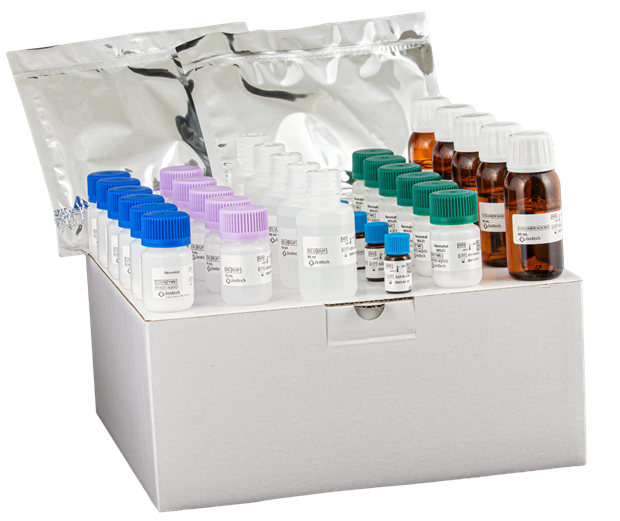Maple Syrup Urine Disease Prevalence
The prevalence is approximately 1/150,000 to 1/200,000 births.
Clinic
Maple syrup urine disease (MSUD) is a hereditary disorder of the metabolism of branched chain amino acids (i.e., leukine, isoleukine and valine), caused by a deficiency of the mitochondrial complex branched-chain a-ketoacid dehydrogenase (BCKD). This complex represents the second enzyme in the catabolic pathway of the three amino acids in question. MSUD is therefore characterized by an accumulation of connected amino acids as well as their catabolic intermediates, branched keto acids.
Several forms of maple syrup urine disease are described: the classic neonatal form in babies, marked by severe neurological toxicity, the subacute form with later detection, the intermittent form and the thiamine-sensitive form.
The genes encoding the different components of the BCKD complex, namely E1-alpha, E1-beta, E2 and E3 are BCKDHA, BCKDHB, DBT and DLD, respectively.
Maple syrup urine disease symptoms in newborns are clinically characterized by psychomotor retardation, eating disorders and a characteristic odor of maple syrup in urine. If left untreated, encephalopathy and central respiratory failure develop rapidly, coma occurs seven to ten days after birth. Episodes of metabolic intoxication may then occur in older children who are usually under nutritional control. These episodes are often caused by an increase in the catabolism of endogenous proteins that can be induced by an intercurrent disease, by exercise, injury, surgery or fasting. Clinical manifestations include epigastric pain, vomiting, anorexia, muscle fatigue, cognitive impairment and ataxia. In such cases, cerebral edema can lead to premature death.
How to treat MSUD
The two main approaches in how to treat maple syrup urine disease include long-term daily dietary management, and treatment of acute metabolic decompensation episodes.
The mainstay of care is dietary restriction of connected amino acids. The response to thiamine (vitamin B1) treatment should be assessed.
The episodes of metabolic decompensation are managed by intravenous infusions of glucose. In rare circumstances, hemodialysis or peritoneal dialysis is necessary to eliminate connected amino acids and toxic ketoacids.
Heredity
Maple syrup urine disease is inherited in an autosomal recessive manner.
